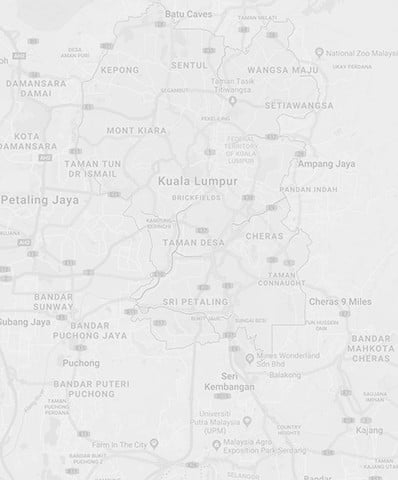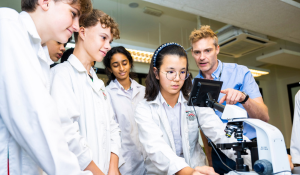The General Certificate of Secondary Education, more commonly known as GCSEs, are taken by students in the UK aged 14-16 years. GCSEs are taken at the end of year 11, although studies for these exams begin in year 10 (or sometimes earlier in year 9). The work is mainly a theory-based study of a subject mixed together with practical work, depending on the nature of the subject.
.jpg?width=513&height=342&name=_SJP1355%20(1).jpg)
GCSEs are part of the national curriculum of England and Wales and cover a broad range of subjects. Core subjects must be included in the student’s selection. At Alice Smith School, students are required to take maths, English language, English literature, a foreign language and science; Physical Education (PE) and Personal Social Health and Economics (PSHE) are also studied at this level but are not accompanied by an exam. Students then pick three optional subjects - choosing the right ones is important as your prospective career can determine the range of subjects you’ll need to take at this level. For example, if you know you want to be a lawyer, then English, maths, history and a foreign language will help.
How many GSCEs do I take?
Most students take between 7 and 12 exams, however, at Alice Smith School most students take 10. It’s a good idea to talk to your teacher about your choices, and they can advise you. Art and design, history, media studies and psychology are just a few subjects that can be taken at this level. If you enjoy a subject and think that you can study it for an exam, then give it a try. Most colleges and universities will expect that you’ve taken at least five GCSEs and have pass marks ranging from a 4 to 9 in your core subjects, but certain universities would expect you to have attained a Grade 6 and higher.
It's useful to remember that the subjects you choose and the grades you receive for these exams will be seen as pointers for how you might do in your A Levels and be used by universities when they’re considering whether to offer you a place on a course.
What do I have to do for a GCSE?
You’ll be expected to study your subjects in greater depth than before, and the workload can come as a shock when you start year 10. Your teacher will support you every step of the way. Independent study, sometimes called homework, is important; for example, in English literature, this will include essays based on your set book. These essays will be beneficial when revising for your exams in year 11 and as practise for the exams themselves. Reading for an English literature exam means you’ll have to know and understand the book inside out. You’ll be expected to understand the main characters and give reasons behind any statement you might make.
Your teacher will help through the way they mark your essays, and their comments will help you develop the skills and knowledge required for GCSE. The maths you’ll cover will include a broader understanding of geometry, algebra, and statistics, among other subjects.
GCSEs are important
In the UK, GCSE qualifications are highly valued by colleges and universities as the grades achieved go on to influence your choice of A Levels, your higher education options and will also be available to your future employers. The GCSEs gained are an important guide for which subjects you should take at A Level and will give you a valuable indicator for your future university choices and career.
If you’re interested in studying GCSE or A Level courses with us at Alice Smith School, get in touch today or download a prospectus.


